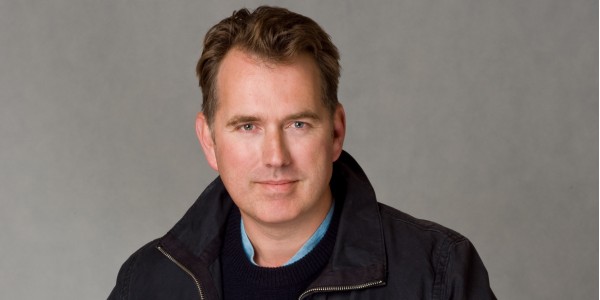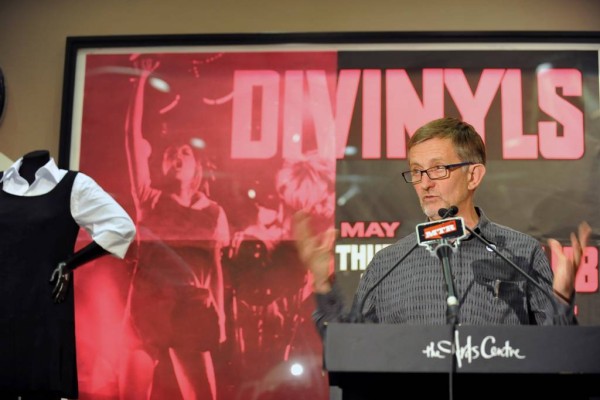"State Governments play an important role in the every day lives of all Victorians. State Government has a responsibility to deliver effective services, such as public transport, education and health care"
What are the issues that motivated you to become a candidate at this election?
When I was in early 30s I served as Deputy Lord Mayor in the City of Melbourne. It was an amazing experience where I found that the political process could be used to improve the lives of so many people, be it working with Fr Bob Maguire on homeless issues to developing broadband policies. This experience led me to seeking a seat in State Parliament, and more specifically with the Liberal Party which is all about protecting individual freedoms and guarding against the rise of the "nanny state".
State government power has been gradually eroded over recent decades, with fiscal and legislative power largely concentrated in the Commonwealth. What is the role of State governments in the 21 st century?
State Governments play an important role in the every day lives of all Victorians. State Government has a responsibility to deliver effective services, such as public transport, education and health care. Despite $350 billion in taxes, charges and other revenue, State Labor, in 11 years, has delivered the lowest number of police, per capita, of any state, with violent crime increasing; a public transport system that is over-crowded, unsafe and rarely on time, a health system under severe stress with secret “waiting lists” and an ambulance system in crisis, and badly congested and poorly maintained roads, and major infrastructure projects that cost billions of dollars more than they should have. We will fix the problems and build for the future because Victorian families need a change and nothing will get better under John Brumby
.
To what extent do you think voter apathy is a problem for the democratic process, and how do you think you (and your party) can address such apathy?
Apathy stems from being locked out of the democratic process. A Liberal Coalition Government will introduce a number of measures to improve the transparency of Government. Firstly, we will establish an Independent Freedom of Information (FOI) Commissioner in Victoria. Under the Liberal Coalition’s plan we will create a specialised independent Office of the FOI Commissioner to take decisions about FOI out of the hands of departments and government. A Liberal Coalition Government will also set up an independent Government Advertising Review Panel to oversee, scrutinise and approve taxpayer-funded advertising. The panel will ensure taxpayer-funded government advertising campaigns are not party political and do not inappropriately use taxpayer funds to promote the government of the day. A Baillieu Government will increase transparency and disclosure to break Labor’s culture of secrecy and deals behind closed doors.
What is the extent of your personal interest in the arts?
I believe that the Arts is an essential part of life in Melbourne. It is what sets us apart from other cities. Ted Baillieu is an avid supporter of the Arts and I have been working with him to develop a policy which will save the Victorian College of the Arts. Part of this policy is recurrent funding of $6 million per year, a policy not matched by the ALP which wants to see the VCA swallowed whole by Melbourne University.
In a nutshell, what is your party’s policy for arts development in Victoria?
In addition to the VCA funding we will deliver a full range of Arts initiatives, some of which include; A Dusk to Dawn Arts Festival involving all the Arts venues in Melbourne.
guarantee continued funding of all existing major festivals; establish a City Museum; promote Arts/business partnerships; support the local film industry, including growing links with the Indian film industry; Guarantee funding for the very popular grass roots "Rock Eisteddfod".
What do you see as the major issues confronting artists in Victoria – and your electorate specifically?
For artists one of the biggest issues has always been making a living in the pursuit of your Art.
Do you think the arts provides economic benefits to Victoria? If so, what are those benefits?
Absolutely. Victoria has the second highest share of Live Performance Revenue 32.1% at $347,305,100 representing some 4,722,449 tickets sold. Victoria is the home of music theatre, and the genre is the second highest grossing arts revenue earner (19.8% of total industry income, representing over $214,959,848). Jersey Boys alone generated $108m for the Victorian Economy and was seen by over 600,000 people during its Melbourne season (The Age 30 Oct 2010). The Creative Economy Report Card 2010 estimates the creative industries generated $31.1billion towards GDP employing over 315,200 people.
Liquor licensing laws are seen as a major issue for musicians. How do you think your policies balances community concerns with alcohol-fuelled violence and the reliance by artists on licensed music venues?
Labor’s soaring liquor licensing fees and inappropriate security conditions led to the closure of the Tote earlier this year (since re-opened under different ownership) and have put many other venues at risk. The Liberal Coalition rejects the idea that live music = high risk. We believe that licence security conditions should be based on actual risk factors, rather than treating all music as high risk. The Coalition will also introduce a rating system for licensed venues, with discounts on liquor licence fees for those venues that have an excellent track record of complying with liquor laws.
What role (if any) does Government have in funding or facilitating art that is confronting or unpalateable to particular demographic groups?
The role of Government is not to be a "nanny state", telling people what they can and can’t look at. Government is not there to police morality or good taste or to protect the public from confronting art works.
Of course there are lines that can be crossed in terms of things such as racial vilification, extreme pornography and violence, however when these lines are crossed you know because you will have broken the law. In other words there are laws to ensure that Art does not go too far, but Government should not be trying to censor art which falls on the side of being legal.
In a technological era where the community has access to a broad range of content via the Internet, what role does government (particularly State) have in the area of censorship?
Government should only censor Art where is breaks laws.
Where laws are being broken in terms of Art which strays into the area of racial vilification, extreme forms of pornography and violence then Government should attempt to prevent its dissemination as best it can (this is obviously difficult in relation to the internet).
Clem Newton Brown is the Liberal Candidate for Prahran.







